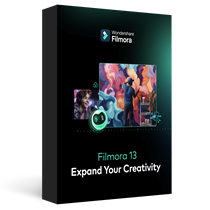Midjourney has taken the imaging industry by storm with its innovations. Although it is still under development, a lot has come across this AI art generator. One major proficiency offered across it is the use of prompts. To create a perfect image, it is necessary to have an ideal prompt.
The following Midjourney prompt guide will help you set up the prompt for creating an image. Learn all the dynamics involving it and understand the diversity provided within them.
In this article
Part 1: Overview of Midjourney and Its Working
Midjourney AI has introduced itself as a text-to-image AI art generator. Several others are introduced in the market against a similar model. Midjourney still holds considerable differences from them. The other text-to-image generators are not user-friendly in offering profitable results. While they get redundant, Midjourney does not operate under such issuances.
The AI platform operates through prompts, which are text commands. These have been adjusted under a criterion that helps users control the image. However, this dynamic divides into basic and advanced prompts. Midjourney AI, as a whole, is a perfect haven for creating high-quality results.

(Experience the magic of Text to Image with Filmora AI Image Generator where your words come to life in beautiful visuals.)
Understanding The Working of Midjourney AI
To know more about how this AI innovation operates, you provide a prompt to process using AI and machine learning. With the provided prompt, you are returned with a clear, professional, efficient image. These images are developed with quality and are kept as unique as possible. The prompts are what set the image results apart.
The entire operation of Midjourney AI is processed through the Discord channel, where the user provides the prompt. The prompt is then processed by the bot that is associated with the creation of the AI image. As a result, the user gets a proper image quickly, which can be used at their convenience.
Turn Your Words into Art with Filmora AI Image! Experience the magic of Text to Image with Filmora AI Image Generator, where your words come to life in beautiful visuals.

Part 2: Difference Between the Basic and Advanced Midjourney Prompt
As stated above, basic and advanced prompts are used for creating images. The diversity in the prompts sets the difference in the results, giving room for uniqueness. Basic prompts are a single word, phrase, or emoji used to create an image out of the imagination. AI and machine learning uses the existing dataset for creating the image.
Before you learn how to write Midjourney prompts, you need to know their structure. While basic prompts are processed with single phrases, advanced prompts have some details. Starting with the prompt from the image URL acts as a standard for understanding what to create.
Following this, the user inserts text phrases, which can be multiple. This clarifies what the user needs in their image. Continuing with the advanced prompt, the user then gives some parameters. These parameters generate the image according to the provided instructions. Here, you can change the parameters such as aspect ratios, models, etc.
Once done, this covers a completely advanced prompt, which can be used to create a unique image. The AI art generator is no different than a proper image editor but operates faster.
Syntax For Basic Prompts:
Syntax For Advanced Prompts:
Pricing of Midjourney AI
We have also highlighted the pricing plans for users who wish to use Midjourney. Look through the following details for a better understanding of the plans:
| Package | Pricing |
| Basic Plan | $10/month |
| Standard Plan | $30/month |
| Pro Plan | $60/month |
Turn Your Words into Art with Filmora AI Image! Experience the magic of Text to Image with Filmora AI Image Generator, where your words come to life in beautiful visuals.

Part 3: Midjourney Parameters Available to Use with Advanced Prompts
Midjourney is yet to be developed, and its education is critical to help users figure out how to use it. While this article provides some Midjourney prompt tips to its users, knowing what is available for them to adapt is also essential. Midjourney contains a set of advanced prompts that can be utilized for the perfect creation of unique images.
We have provided a basic overview of these advanced prompts to help you understand how to write Midjourney prompts properly:
Remix
You can activate the "Remix" mode from the "/settings" command or the "/prefer remix" command. Continue to use it to vary the qualities of an image. From changing the parameters to model versions and aspect ratios, the Remix Mode helps a lot. You can change the setting or lighting of an image or manage the subjects being created.
On using Remix, the following parameters are dealt with and varied under the mode:
- Aspect Ratio
- No
- Stop
- Title
- Video
Example: frontal view of iridescent space tardigrade -- v 4

(Experience the magic of Text to Image with Filmora AI Image Generator where your words come to life in beautiful visuals.)
Example: unibody costume -- ar 2:3 -- v 3

Multi Prompts
If you have two concepts within a single prompt, using a proper "separator" helps create it. Consider the subjects separately using the "::" double colon within the prompt. You can also add prompt weights to influence a specific object within the prompt. Adding a number before a specific object within the multi-prompt will assign more importance to that part.
If you wish to exempt the unwanted objects, you can also add negative prompt weights. Such diversity can be practiced only through multi-prompts, which shows an advanced structure.
Example: a light, fluffy, colorful cotton:: candy on a paper cone, airy texture, 8k

Example: a light, fluffy, colorful cotton::2 candy on a paper cone pink::-.5, airy texture, 8k

Permutation Prompts
As the name indicates, permutation prompts help create multiple variations. This is done with a single prompt written against different options. You are only required to use commas or curly brackets. With that, you can set a precedent in executing different combinations against a single prompt. To make nested permutations, using the brackets to create sets within a prompt gives you the results.
Permutation prompts are the perfect way of influencing combinations through a single prompt. Using elements like commas and curly brackets, you can create the required permutations according to your need. If you do not want to separate the subjects from each other, you can use the "backslash" along with the comma to set it as a single combination.
Example: a beautiful garden in the mountains, summer season, elegant, manicured, 8k HD

(Experience the magic of Text to Image with Filmora AI Image Generator where your words come to life in beautiful visuals.)
Example: a beautiful garden in the mountains, winter season, elegant, manicured, 8k HD

Conclusion
The provided guide has discussed the right ways of using prompts in Midjourney. With basic and advanced prompts, you can easily create the best images. Yet, an understanding of how to write Midjourney prompts is fundamental. This article has helped you with a proper Midjourney prompt guide and offered some explicit details.

